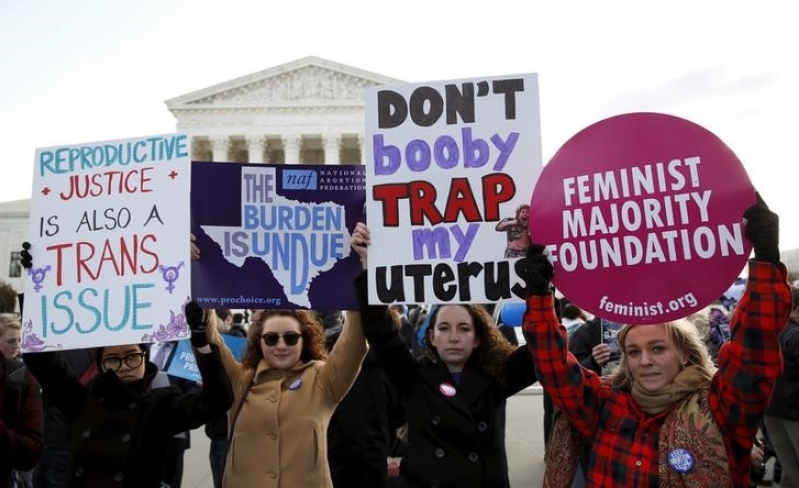
Reverberations from the U.S. Supreme Court's major ruling backingabortion rights were felt on Tuesday as the justices rejected bids by Mississippi and Wisconsin to revive restrictions on abortion doctors matching those struck down in Texas on Monday.
The laws in Mississippi and Wisconsin required doctors to have "admitting privileges," a type of difficult-to-obtain formal affiliation, with a hospital within 30 miles (48 km) of the abortion clinic. Both were put on hold by lower courts.
The Mississippi law would have shut down the only clinic in the state if it had gone into effect.
"This is what we've been waiting on," Shannon Brewer, director of the Jackson Women's Health Organization clinic in Mississippi, said in a telephone interview. "We've been on pins and needles not knowing when this ruling would come down. This is a wonderful victory for us."
In addition, Alabama's attorney general said late on Monday that his state would abandon defense of its own "admitting privileges" requirement for abortion doctors, in light of the Supreme Court's ruling.
The laws in Texas, Mississippi, Wisconsin and Alabama are among the numerous measures enacted in conservative U.S. states that impose a variety of restrictions on abortion. But the Supreme Court's ruling on Monday in the Texas case, providing its most stout endorsement ofabortion rights since 1992, could imperil a variety of these state laws.
Conservative Justice Anthony Kennedy joined the court's four liberals in the 5-3 decision.
Alabama's Republican attorney general, Luther Strange, said that "there is no good faith argument that Alabama's law remains constitutional in light of the Supreme Court ruling."
Jennifer Dalven, a lawyer with the American Civil Liberties Union, said the action in Mississippi, Wisconsin and Alabama is just the start of the fallout from Monday's ruling.
"States have passed more than 1,000 restrictions on a woman's ability to get an abortion. This means for many women the constitutional right to an abortion is still more theoretical than real and there is much more work to be done to ensure that every woman who needs an abortioncan actually get one," Dalven added.
The justices decided that the Texas law placed an undue burden on women exercising their right under the U.S. Constitution to end a pregnancy, established in the court's landmark 1973 Roe v. Wade decision..
The ruling is likely to encourage abortion rights advocates to challenge similar restrictive laws in other states.
In November 2015, the Chicago-based 7th U.S. Circuit Court of Appeals struck down the Wisconsin law.
In the Mississippi case, a federal district court judge issued a temporary injunction in 2012 blocking the law because it would have forced women seeking abortions to go out of state. The same judge issued a second injunction in 2013, which was upheld by the New Orleans-based 5th U.S. Circuit Court of Appeals in 2014.
The high court's ruling on Monday also tossed out a provision in the Texas law requiringabortion clinics to have costly hospital-grade facilities in addition to the "admitting privileges" mandate.
Some states have pursued a variety of restrictions on abortion, including banning certain types of procedures, prohibiting it after a certain number of weeks of gestation, requiring parental permission for girls until a certain age, imposing waiting periods or mandatory counseling, and others.
In May, Oklahoma's Republican-led legislature passed a bill calling for prison terms of up the three years for doctors who performed abortions, but the state's Republican governor vetoed it.







